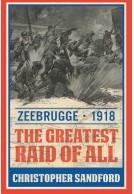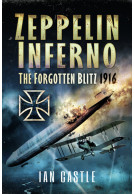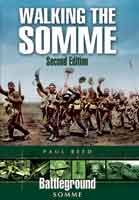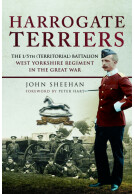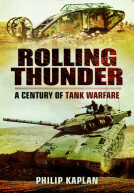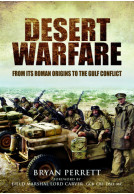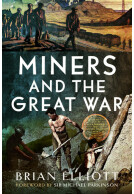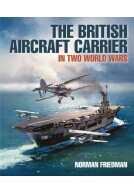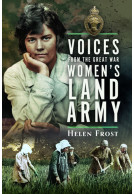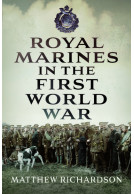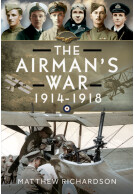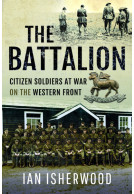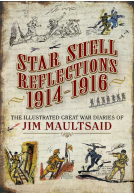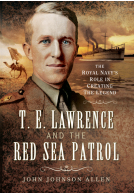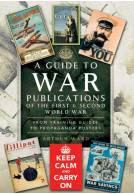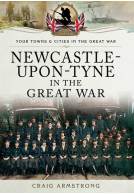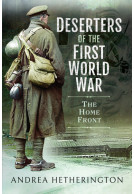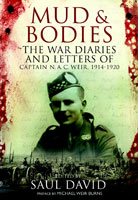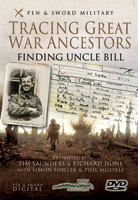WWI
The horrors and sacrifices of the First World War are deeply engrained in the national psyche - as we commemorate the centenary its echoes sound louder than ever. The four years between 1914 – 1918 irrevocably changed the lives of its participants and each subsequent generation, right up to the present day. One hundred years later and the themes are still familiar – unrest in the Balkans, unification of Europe, the rise and fall of nation states.
Pen & Sword Books have an unrivalled list of Great War titles covering the tragic yet often glorious events of ‘the war to end all wars’. These describe, often in the words of participants, combat on the ground, in the trenches, as well as in the air and at sea. We have a superb range battlefield guide books, memoirs and descriptive historical accounts by expert authors. Our comprehensive list of Great War titles provide an excellent insight into this most complex, and affecting, of conflicts.
British Battleships of World War One
This superb reference book achieved the status of 'classic' soon after its first publication in 1986; it was soon out of print and is now one of the most sought-after naval reference books on the secondhand market. It presents, in one superb volume, the complete technical history of British capital ship design and construction during the dreadnought… Read more...
Star Shell Reflections 1914-1916
As the centenary of the Great War approaches, this book offers a unique perspective told in the words and illustrations of someone who was there , on the front line. Although an American citizen, Jim Maultsaid's parents were Irish and he lived in Donegal. He joined the Young Citizen Volunteers, a group drawn from the ranks of clerical and professional… Read more...
T. E. Lawrence and the Red Sea Patrol
Although many books have been written about T E Lawrence and the Arab Revolt, none before has fully explored the pivotal role of the Royal Navy in the Red Sea at the time. This is the first book to be written about the Navy's role in the success of the Arab Revolt in the creation of the legendary figure of Lawrence of Arabia. Following extensive and… Read more...
Cardiff and the Valleys in the Great War
Looks at the Cardiff Pals and other local regiments who fought in the Great War and how the experience of war impacted on the area, from the initial enthusiasm for sorting out the German Kaiser in time for Christmas 1914, to the gradual realization of the enormity of human sacrifice the families of Cardiff were committed to as the war stretched out… Read more...
A Guide To War Publications of the First & Second World War
In WW2 information leaflets and posters proliferated. Soldiers were bombarded with Field Regulations, airmen with the latest updates about airborne early warning, bomb sights and radio navigation and sailors with material that helped them identify enemy aircraft and submarines and told them how to operate the new ship board weapons to destroy them.… Read more...
Newcastle-upon-Tyne in the Great War
With the large number of troops stationed in and around the area and its position as a major industrial city, which focused on armaments production, shipbuilding and heavy engineering, the realities of the war were always prominently felt in Newcastle-upon-Tyne. The city played a key role in the nation's war effort, as it was a key port and the nation's… Read more...
Deserters of the First World War
The story of First World War deserters who were shot at dawn, then pardoned nearly a century later has often been told, but these 306 soldiers represent a tiny proportion of deserters. More than 80,000 cases of desertion and absence were tried at courts martial on the home front but these soldiers have been ignored. Andrea Hetherington, in this thought-provoking… Read more...
My Boy Jack?
Republished to coincide with the new ITV film, My Boy Jack? starring Daniel Radcliffe, this is the full account of the tragic life of John 'Jack' Kipling. On 27th September 1915 John Kipling, the only son of Britain's best loved poet, disappeared during the Battle of Loos. The body lay undiscovered for 77 years. Then, in a most unusual move, the Commonwealth… Read more...
Mud and Bodies
Neil Weir died in 1967, but it was not until 2009 that his grandson, Mike Burns, discovered his diary and letters among some packing trunks he had been left, and learnt that his grandfather had served as an officer in the 10th Battalion Argyll and Sutherland Highlanders for much of the First World War. A captain and company commander at the tender… Read more...
Somme, 1st July 1916 DVD (northern)
This ground breaking series of military DVDs is launched here with the release of Somme, 1st July 1916 - Northern Sector. The DVD covers the events of 1st July in the areas from Gommecourt, Serre, Beaumont Hamel, Thiepval to Ovillers. It contains a visual tour of each of the key areas in the northern sector, together with maps, archive film and contemporary… Read more...
Tracing Great War Ancestors DVD
Never before have so many resources been available to the family historian tracing Great War ancestors, both online and locally but the past dearth of easily accessible material has now been replaced by a blizzard of information that needs its own skills to navigate. This highly detailed DVD is split into three parts that deal with the various methods… Read more...
Somme, 1st July 1916 DVD (southern)
This ground breaking series of DVDs continues here with the release of Somme, 1st July 1916 - Southern Sector. The DVD covers the events of 1st July in the areas from la Boisselle, Fricourt, Mametz, Carnoy to Montauban. It contains a visual tour of each of the key areas in the southern sector, together with maps, archive film and contemporary stills.… Read more...









